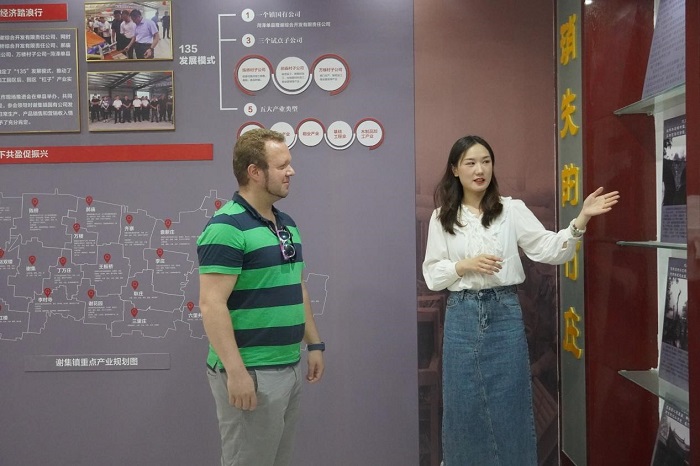German visitors fascinated by museum in Shandong
A group of visitors from Germany recently visited a museum in a county in East China's Shandong province, an experience many of them said gave a great insight into local culture and left an enduring positive impression about the region.
An event – with the theme Exploring Shandong-International Friends Perception of Shanxian County – was held at the Xieji Town Historical Museum in Shanxian county in Heze city, located in Shandong province.
Participants included businessman Marcel Spee and colleagues were specially invited to attend.
The museum, with a floor space of 125 square meters, uses a variety of mediums – such as old and new photographs, ancient artifacts, maps, informative displays and sculptures – to provide a comprehensive overview of the town's evolution, modernization and future goals.
At the entrance of the building, there is a banner that reads "Rural Revitalization Pioneered by Cultural Development". As visitors walk along the corridor leading to the museum, they can admire various artworks that showcase botanical motifs such as peonies, plum blossoms and chrysanthemums. The exhibition inside the museum is divided into nine sections, each focusing on different themes such as historical changes, cultural legacies, vanished villages and local skilled artisans.

Visitor Marcel Spee listens to a museum member of staff explain the pictures on display. [Photo by Wang Xiaolan for chinadaily.com.cn]
For instance, in the exhibition hall for folk artifacts, visitors can explore old items used in farming and transportation, such as plows, bicycles and carts.
Everyday items from the past, including straw hats, mantel clocks and kerosene lamps, are also on display.
Many of these were donated by the town's elderly residents. There are also meticulously crafted sculptures that portray scenes from the past, such as textiles production.
All these items left a lasting impression on the visitors. Marcel Spee said that he had gained a comprehensive understanding of the town through his visit. (Edited by Zhou Yunlai)








